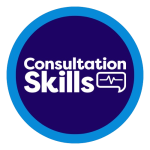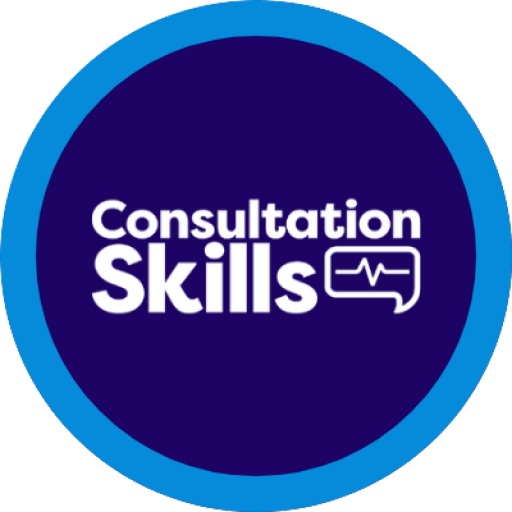For all healthcare professionals, mastering the art of consultation is not just an advantage; it’s a necessity. At Consultation Skills, we’ve dedicated ourselves to not only enhancing these essential skills but ensuring they’re deeply integrated with industry-leading frameworks. Today, I want to delve into how our consultation skills align with the revered Calgary-Cambridge Model—a cornerstone in NHS GP and broader healthcare professional training. This alignment ensures professionals are not merely competent but excel in their patient interactions, embodying a standard of care that is both empathetic and effective.
Understanding the Calgary-Cambridge Model
Firstly, let’s break down what the Calgary-Cambridge Model is. This framework is the gold standard for clinical communication. It was developed to provide a comprehensive, evidence-based guideline to the complex skill set required for effective clinical consultations. Its beauty lies in its simplicity and depth, covering everything from initiating the session to closing the consultation, all while fostering a therapeutic relationship. Our curriculum is crafted around this model, ensuring every facet of clinical communication is covered, from the nuances of body language to the precision of patient feedback.
The Calgary-Cambridge Model Alignment with Consultation Skills
At Consultation Skills, our approach is meticulously designed around the core principles of the Calgary-Cambridge Model. We understand the profound impact that skilled communication can have on patient outcomes. Here’s how we align our training and practice with this exemplary model:
Starting the Consultation
Starting on the right note is critical. Our resources emphasise the importance of creating a comfortable environment for patients, mirroring the model’s guidelines. We teach healthcare professionals how to open consultations effectively, setting the stage for a productive and positive interaction. This includes mastering the art of introductions, stating the purpose of the consultation clearly, and ensuring the patient is at ease. Creating this initial comfort is essential for building trust, which is the cornerstone of any therapeutic relationship. Our professionals learn to gauge patient comfort levels and adjust their approach accordingly.
Gathering Information
One of the model’s strengths is its comprehensive approach to gathering information. This encompasses not just the medical or presenting problem, but the patient’s ideas, concerns, and expectations. Our curriculum dives deep into the skills required to explore these areas thoroughly. We focus on teaching open-ended questioning, active listening, and empathy—ensuring professionals can understand the full scope of the patient’s situation and needs. This holistic view is vital for formulating an effective care plan that addresses all aspects of a patient’s health, both physical and emotional.
Providing Structure to the Consultation
Structure is essential for an effective consultation. The Calgary-Cambridge Model outlines a clear pathway for consultations, from beginning to end. At Consultation Skills, we echo this need for structure. Our resources emphasise the importance of signposting and summarising, helping healthcare professionals guide consultations smoothly, ensuring all critical areas are covered without overwhelming the patient. This structured approach helps in maintaining clarity and focus throughout the consultation, making efficient use of time while ensuring patient concerns are fully addressed.
Building the Relationship
The heart of the Calgary-Cambridge Model—and indeed, our ethos—is the patient-professional relationship. The model provides a framework for building a rapport with patients, understanding their perspective, and involving them in the decision-making process. Our approach prioritises empathy, respect, and sensitivity to patient diversity, ensuring that consultations are not just informative but also supportive and empowering. This relationship-building is a skill we continuously develop, as it forms the bedrock of patient trust and cooperation throughout their healthcare journey.
Explanation and Planning
Communicating information effectively is a skill that cannot be overstated. We align with the model’s emphasis on clear, jargon-free explanations and the importance of checking understanding. Our training focuses on techniques for breaking down complex information, using analogies where appropriate, and ensuring that the patient feels informed and involved in their care plan. Effective communication in this phase is crucial for ensuring patient adherence to treatment plans and for fostering an environment where patients feel comfortable to express concerns or ask questions.
Closing the Consultation
Finally, the way a consultation ends is as important as how it begins. The Calgary-Cambridge Model highlights the need for summarising the session, ensuring there’s a clear plan moving forward, and allowing space for any final questions. At Consultation Skills, we reinforce these practices, ensuring that every consultation concludes with clarity and a sense of closure for the patient. This ensures patients leave with a clear understanding of their health situation and the next steps, reducing anxiety and enhancing compliance with treatment plans.
The Impact on NHS GP Consultation Skills
Implementing the Calgary-Cambridge Model through our Consultation Skills training has profound implications for GP consultation skills. It not only enhances the quality of patient care but also improves job satisfaction among healthcare professionals. By mastering these skills, GPs and other healthcare providers can navigate the complexities of patient interactions with confidence, fostering better health outcomes and stronger patient-provider relationships. This elevated level of skill in consultation directly contributes to the efficiency and effectiveness of the NHS, improving patient satisfaction and healthcare delivery across the board.
Why It Matters
In an era where the healthcare landscape is continuously evolving, the need for effective consultation skills has never been more critical. The Calgary-Cambridge Model offers a roadmap to excellence in clinical communication. At Consultation Skills, we’re proud to align our training with this model, ensuring that healthcare professionals are equipped to meet the challenges of today’s NHS. This commitment is a testament to our dedication to advancing healthcare communication, embodying the principles of compassion, clarity, and efficiency in every consultation.
Conclusion
The Calgary-Cambridge Model remains a beacon of excellence in clinical consultations. At Consultation Skills, we’re dedicated to aligning our practices with this model, ensuring that every healthcare professional we train is not just competent, but exemplary in their patient interactions. This commitment to excellence is not just our promise; it’s our contribution to the future of healthcare. Our training programs are designed not just to teach skills but to inspire a change in how healthcare is delivered and aligned to the Calagary-Cambridge Model, ensuring a legacy of excellence in patient care.
CALGARY-CAMBRIDGE PROCESS SKILLS – Marrying communication to clinical method. By Andrew Ashford


